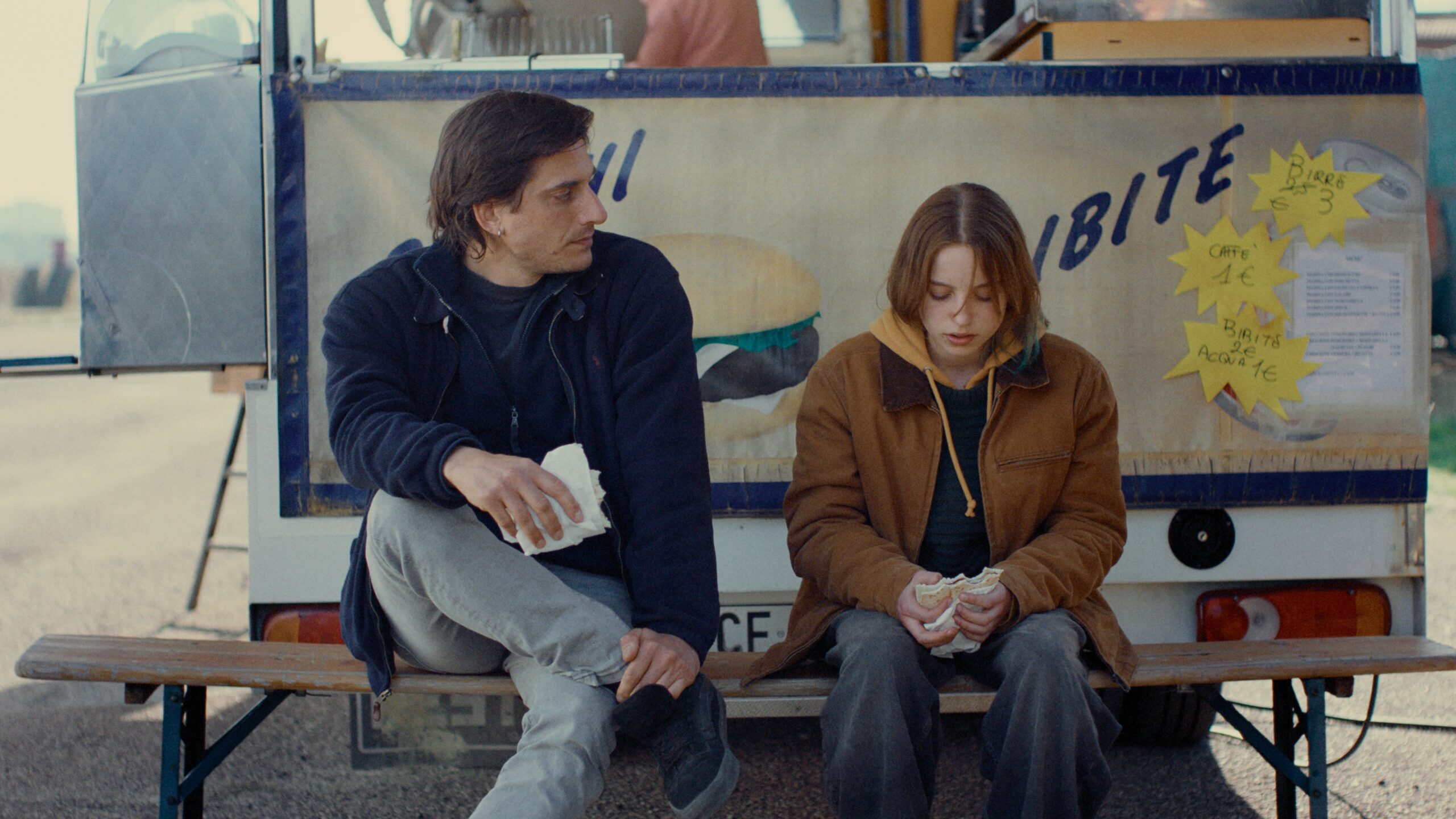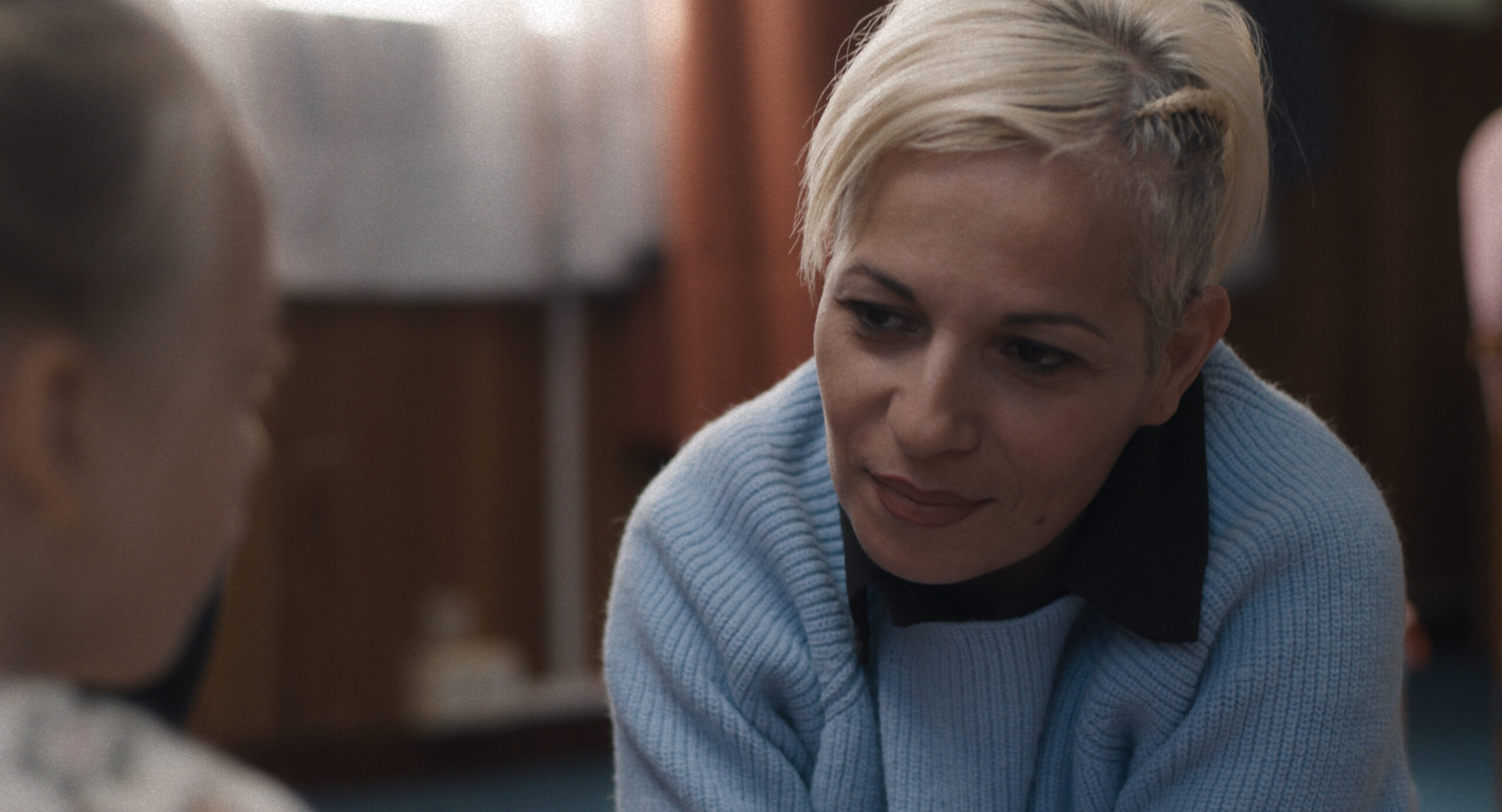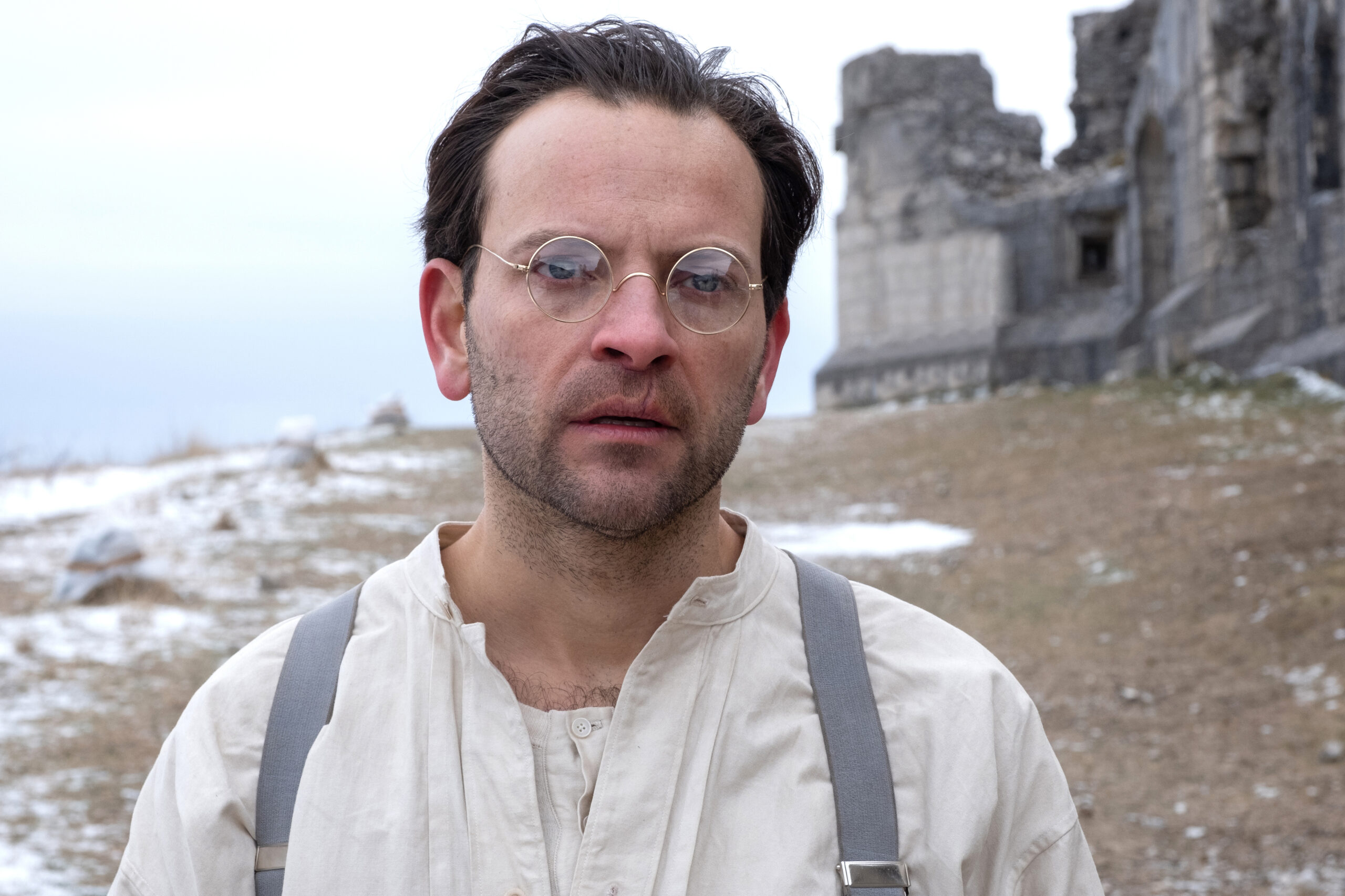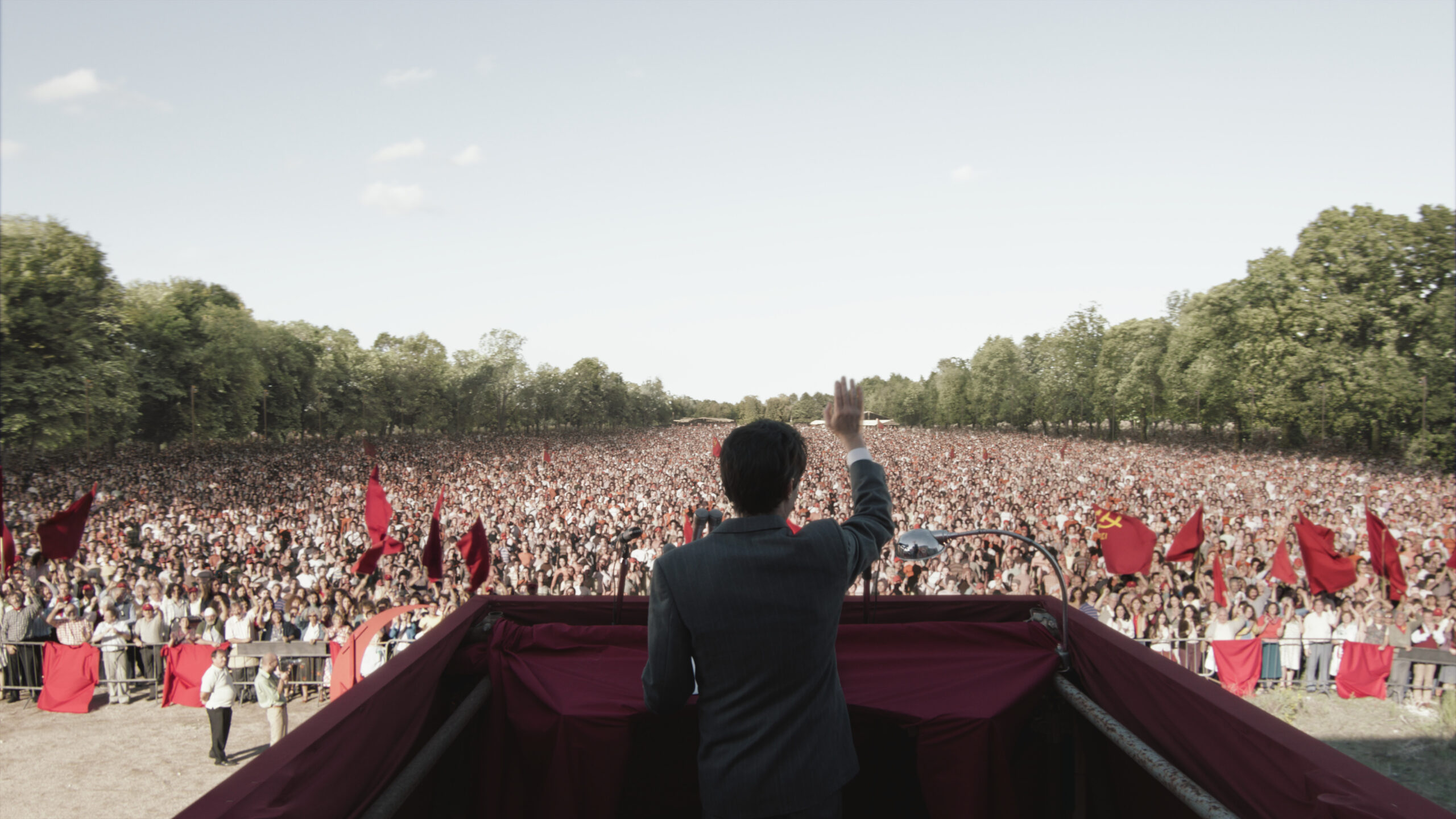One of the only ways to experience the impressive work being done by Italian filmmakers each year on the big screen, in NYC, is via Open Roads: New Italian Cinema thanks to Film at Lincoln Center and Cinecittà.
The Fest runs May 29-June 5.
This year’s festival opens with the New York premiere of Francesca Comencini’s The Time It Takes (Il tempo che ci vuole), which bowed at last year’s Venice Film Festival and was nominated for six David di Donatello awards including Best Film, Best Director, and Best Actor for its star, Fabrizio Gifuni, who will be in town for a Q&A. Romana Maggiora Vergano, who plays Francesca, won the Pasinetti Award for Best Actress in Venice.
“The lineup for this year’s edition of Open Roads: New Italian Cinema represents an Italian cinema which has never been more international, more responsive to social and political developments both at home and abroad, more adventurous in terms of both style and substance,” said Dan Sullivan, FLC Programmer.
For the entire program, tickets and more info visit: https://www.filmlinc.org/festivals/open-roads-new-italian-cinema/
The Contending sampled quite a few of the entries, both in NY and in Venice, and happily recommend these titles:
Diamonds (Diamanti)

Prolific director Ferzan Özpetek continues to be one of the only Italian filmmakers who consistently produces gay-themed or gay-adjacent films. His sensibilities are reminiscent of Luchino Visconti. His latest gem, Diamonds (Diamanti), is a love letter to his female heroes, both his cinematic leading ladies as well as the tremendously talented women who have costumed actors and extras throughout film history. Özpetek co-wrote the absorbing script with Elisa Casseri and Carlotta Corradi which was inspired by his early days as an assistant director where his duties included working with the Satoria TIrelli costume makers, led by costume designer Piero Tosi, a five-time Oscar nominee and 2014 Honorary Oscar recipient.
The film opens in meta fashion with the filmmaker gathering his gaggle of female actors around a food-filled table to speak with them about his latest project. After a hearty meal, they dive into the screenplay, set in Rome in 1974. We then find ourselves back in that time period, in the eternal city, where two sisters Alberta (Luisa Ranieri) and Gabriella (Jasmine Trinca) run their own costume company with a most dedicated female staff.
Channeling a little Almodóvar, Özpetek’s world is loaded with many a melodramatic twist and turn, with stories that include a horrifically abusive husband, the tragic loss of a child and a troubled teen boy—we can only assume is gay.
Ranieri and Trinca give rich and vibrant performances as two very different sisters who both love and resent one another.
The entire ensemble shine with especially exceptional work by Milena Mancini, Geppi Cucciari, Paola Minaccioni, Dario Samac, Lunetta Savino and Vanessa Scalera as well as male eye candy provided by Edoardo Purgatori, Lorenzo Franzin, Antonio Iorio and Antonio Adil Morelli.
The camerawork, production design and, of course, costumes, are all top notch and the title song, “Diamanti,” music by Giuliano Taviani & Carmelo Travia and lyrics by Giorgia, is an evocative and infectious tune, stunningly performed by Giorgia.
This is Özpetek’s 15th feature film and it’s magnificent.
Paternal Leave

Alissa Jung’s first feature, Paternal Leave, which world premiered at this year’s Berlinale, is one of the best of this year’s crop at Open Roads and has a great chance at distribution here.
The film centers on Leo (terrific newcomer Juli Grabenhenrich), a 15-year-old girl who journeys to northern Italy, from her home in Germany where she’s always lived with her mother, to meet Paolo (Luca Marinelli), the biological father she’s never known. Suffice to say, the initial meeting is beyond awkward. She doesn’t speak any Italian. And Paolo is gobsmacked by the visit, especially since he’s currently trying to salvage his current relationship and has another, much younger daughter, Emilia (Joy Falletti Cardillo). Leo has a slew of questions for Paolo, who convinces her that the best way to get to know him is for them to spend time together, although he also wants to keep her identity a secret from the locals, and, especially, from his wife and daughter.
Paternal Leave turns out to be a truly authentic and sometimes searing look at Italian toxic masculinity. Paolo seems more concerned with his reputation and what people will think of him, than with his own daughter’s feelings—a very Italian-Catholic trait (trust me).
Marinelli (Martin Eden) delivers a complex, deeply affecting turn. His Paolo is egocentric, flawed but doing his best—even when that is nowhere near good enough.
SPOILER
The film’s only misstep is in not taking things a step further. Paolo gets off to easy. His current wife is no idiot, and she should have called him out and made him admit who Leo was. It would have raised the stakes significantly and forced him to reckon with his past.
Familia

“Famiglia” is the Italian translation for “family,” however the title of Francesco Costabile’s taut, often-terrifying new film is “Familia,” the Roman dialect form of the word. This is significant because it’s a bastardization of the language—a lazy dropping of the “gli” sound, mostly from the patriarch. The family portrayed in the film, based on real people and events, are a degraded version of the ideal Roman-Catholic family—one where the father lazily refuses to change his abusive ways.
Stunningly photographed by Giuseppe Maio, the film explores both the love and toxicity of familial relations between a physically and psychologically damaging father Franco (David di Donatello winner Francesco Di Leva), his shellshocked wife Licia (Barbara Ronchi) and two sons.
One son, Luigi—Gigi to his friends— (Francesco Gheghi from Mascarpone: The Rainbow Cake) finds a creepy kind of solace in a neo-Fascist gang that worships Mussolini. Gigi feels a need to reconnect with his violent papa, which opens up a can of Pandora worms. His brother, Alessandro (Stefano Valentini) does not share his sibs desire to have dad back in their lives.
Familia poses the question: how much abuse can one family take? It also exposes the holes in the Italian legal system where it’s virtually impossible to report abuse to authorities without risking one’s life.
Buoyed by Gheghi’s fierce and fully-committed performance, Familia is a thrilling, anxiety-inducing, deliberately frustrating cinematic rollercoaster ride that may lead to redemption or damnation. The potent message that no one should have to tolerate abuse is made crystal clear.
The Time it Takes (Il Tempo che ci vuole)

Very late in Francesco Comencini’s lyrical work, The Time it Takes, an aging filmmaker bursts into tears watching Rossellini‘s Paisà. He then has a monologue, spoken to his daughter, about how his recall is less than what it once was, but he clearly remembers all the silent films that he saved as a boy, before they sent them to the scrap heap. It’s a lovely moment about what cinema means to him.
Comencini’s has created a meditation on the love one fiercely protective father (a glorious Fabrizio Gifuni) has for his devoted but troubled daughter (Romana Maggiore Vergano).
Through political and social upheavals the film traces the relationship from the daughter’s childhood to the father’s final years. The pic is about memory and cinema and how they blend together. “With cinema, with imagination, you can escape,” the father insists. The Time it Takes provides a poignant escape, but also a way for cinephiles to look back on their own lives and the movies that shaped who they are.
Vittoria

I had no knowledge of a key element to Alessandro Cassigoli and Casey Kauffman’s deeply affecting new film, Vittoria, so a certain realization afterwards made the achievement even more extraordinary.
Based on true events, the film centers on Jasmine (Marilena Amato), a married 40-year-old hairdresser living in a town south of Naples, with three sons who has a recurring dream where her late father is holding the hand of a young girl. She sees it as a sign that a daughter might fulfill her. “I have a deep desire. I want to follow it,” she tells her unconvinced husband Rino (Gennaro Scarica). But Jasmine does not want to carry another child—having undergone three cesarian births with her sons. She wants to adopt. Jasmine has her own agency. She’s not subservient to anyone, least of all her spouse.
Cassigoli and Kauffman have fashioned a heartwarming film about how one seemingly absurd, obsessive impulse can lead to something surprising, even sublime.
SPOILER—not really, because it’s been discussed.
Vittoria boasts non-professional actors portraying their own lives which is somewhat surprising because they all deliver honest, nuanced turns, especially Amato.
Battleground (Campo di battaglia)

Gianni Amelio’s gripping new film, Battleground, takes place in Northern Italy in the waning days of the first world war, in and around a Royal Italian Army facility where two medical officers, Giulio (Alessandro Borghi) and Stefano (Gabriel Montesi) are stationed. Both are childhood friends who could not be more different.
Stefano cannot tolerate soldiers with self-inflicted wounds who self-mutilate to avoid fighting and is almost demonic in his desire to send them all back to the front. The only compassion he can muster is for those who show valor, as he defines it.
Giulio, known secretly as “The Holy Hand,” lives at another extreme. He’s much more understanding and vehemently opposed to war. And he does what he has to in order to ensure that his soldiers are sent home, even if it means seriously injuring them.
A nurse from their past arrives and her thoughtless actions cause the death of one of the soldiers and exposes Giulio. Then, the Spanish Flu begins spreading among the civilians as well as the soldiers.
Battleground loses some momentum once the disease begins to appear and the film’s focus blurs. Until then it proves to be a compelling look at two very different men who have a deep love for one another but are so fundamentally different in their political and social views. There is an attraction between the two, that, of course (this being an Italian film), goes unexplored. And the nurse seems to exist to prove their heterosexuality.
The other interesting thing about the movie is its depiction of WW1-era soldiers in horrific pain, mentally and physically, who will do whatever it takes to stay away from the battlefield. We’ve seen this type of portrayal often in American films about Vietnam and even WW2, but rarely in those about Italian soldiers (many Sicilian) fighting in the first world war.
The Great Ambition (La grande ambizione)

Elio Germano delivers a sharp and understated turn as Enrico Berlinguer, the most significant leader of the Italian Communist Party in the 1970s, in Andrea Segre’s muted but intriguing biopic, The Great Ambition. For those unfamiliar with Italian politics the pic may feel confusing and it might be smart to do some Googling before and after the film, but, even then, the movie feels more procedural than cinematically inviting. But it’s Germano’s impressive, graceful performance that kept me interested throughout. That and the parallels with our current convoluted politics both here and in Europe.
Berlinguer was a figured who wanted to achieve socialism within a democracy, distancing the party from the Soviet Union, and desiring a national unity. And he came close to changing history.
The movie was nominated for a whopping 15 David Donatello Awards, winning two: Germano for Best Actor and, oddly, Best Editing.









